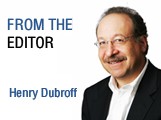Fed chair needs chemistry, consensus building and communications skills

He was a hard charger, a very bright, highly successful and Democratic Party partisan. He helped rescue an auto company.
He is the only person in history to have been both secretary of the Treasury and chairman of the Federal Reserve.
I am not writing about former Treasury Secretary Larry Summers, President Barack Obama’s presumed choice to succeed Ben Bernanke. Instead, I’m writing about G. William Miller, whose term at the head of the nation’s central bank in the late 1970s was short and tumultuous.
According to reporting in the New York Times and elsewhere, Miller, who was relatively new to Washington at the time of his appointment, never really grasped the need to build consensus around the Fed’s nicely appointed board table. He fell far behind the curve in raising interest rates. He was sometimes outvoted by the other fed governors who wanted to be more aggressive in fighting a serious bout of inflation that plagued the economy during the Carter Administration.
But he remained a very close confidant of the president, and the problem of Miller’s ineffectiveness found a solution when Jimmy Carter shuffled his cabinet. Carter installed Miller as Treasury Secretary and Miller subsequently helped calm economic jitters and pushed through what would become a very successful bailout of Chrysler.
Clearly this is a different time with different personalities. But my point is that when it comes to the job of Fed chair, chemistry, consensus building and communications skills really do matter.
When Carter went looking to replace Miller, he turned to the best available insider, then New York Fed President Paul Volcker. Volker quickly built a consensus and took the highly unconventional step of curbing the money supply, a move that eventually broke the back of inflation.
Today the world has largely forgotten G. William Miller but Volker is recognized as the man who rescued the world economy from the clutches of stagflation. His “Volker rule” is a key part of the post-crisis financial reforms.
Memo to Fed Vice Chair Janet Yellen: If Larry Summers actually is nominated and confirmed, stick around. Your turn may come — and a lot quicker than you think.
Not an easy task
Mogul Ron Burkle is betting a small part of his estimated $3.1 billion fortune that he can turn around ailing Fresh & Easy, British grocer Tesco’s bid to create a budged priced, health-oriented chain as an alternative to Trader Joe’s.
Burkle’s Yucaipa Cos. will get $126 million in financing from Tesco, although the total sale price was not disclosed. Burkle will get 150 operating stores and a huge distribution facility in Riverside.
Burkle will get a huge goodwill bump from politicians and the public as the alternative might have been shutting down the chain with the loss of thousands of jobs.
But in the final analysis, this looks like a deal straight out of Warren Buffett’s value investing playbook. First, it clearly looks like a one-on-one negotiated transaction, not an auction.
Second, Yucaipa has kept Tesco in the game as a key partner — important to as smooth transition. Third, Fresh & Easy probably will work out well as a value priced, common sense neighborhood grocer.
Finally, Burkle has the fundamentals of the economy headed in his direction. The poor and middle class communities where Fresh & Easy stores have popped up over the fast few years are seeing a gradual but welcome turnaround.
Still, the grocery business is known for razor-thin margins and tough competition. Rising fuel costs are going to take their toll. Fresh & Easy quickly can get a fresh look and fresh inventory. But even with Tesco out of the picture, this particular turnaround might not be as easy as it looks.
• Contact Editor Henry Dubroff at [email protected].










